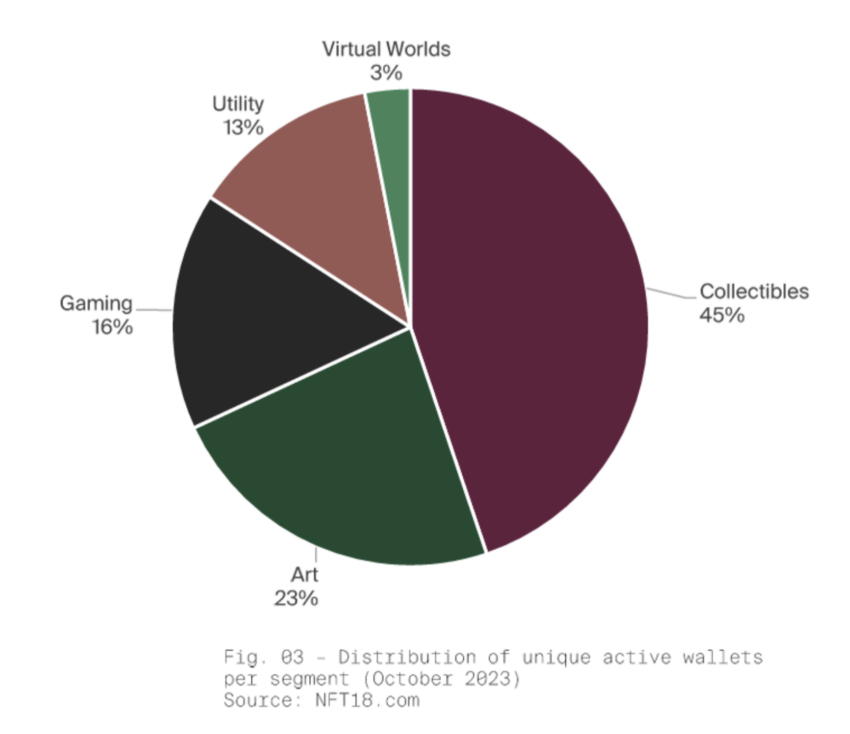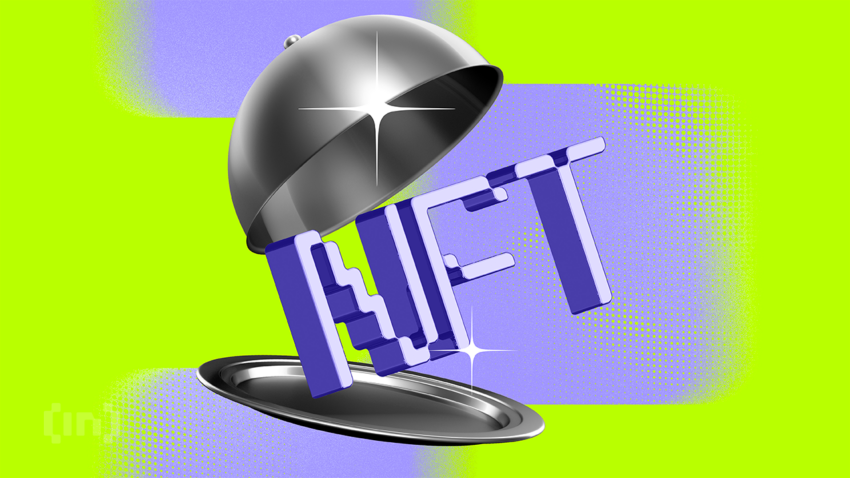While non-fungible token (NFT) marketplaces have been quiet compared to the heady days of 2021, they are by no means dead. Rather, NFT collectors have shifted focus to holding their assets for longer as the concept of community takes hold.
An October report by NFT18 reveals that the period between an NFT purchase and resale has almost quadrupled since 2021 to just under 100 days. Somewhat counter-intuitively, though, the active wallets on OpenSea are still quite healthy at 192,500.
Art Segment is Becoming More Popular
Blur, an OpenSea competitor, offers incentives that may have artificially boosted half its $213 million volume, making it difficult to gauge organic trading activity. OpenSea had the second-largest volume of $84.8 million in October. The number of active projects (at least one sale in the last month) increased 4% from September to 35%.
In terms of categories, collectibles like the Azuki, Doodles, and Bored Ape Yacht Club collections still dominate the NFT market in terms of active wallets (45%). Surprisingly, art accounts for the second-most active wallets (23,000), while gaming, utility, and virtual world comprise the remaining 122,874 transacting addresses.

Art traded makes up only 7% of the total volume traded in October, but the segment is growing, as companies like 10101.art and others fractionalize art for shared ownership. Some owners are less likely to sell their NFTs, having a collector’s rather than a speculator’s mindset.
Read more: NFT Art: How Is It Different From Traditional Art
Future of NFT Marketplaces Lies in Community
In an interview with BeInCrypto, the head of UNCUT, Carlos Diaz, suggested NFT marketplaces of the future should consider social features from the ground up. They ought to be geared more towards the collector community and focus less on speculation. UNCUT is a creator-focused NFT platform with social interaction at its core.
“[OpenSea was] bringing in money, you know, bucket loads, but there wasn’t really a focus to enhance the user experience. Now everyone is refocusing on that, Right now, everyone is talking about social graph, social wallets, social marketplaces because they realize that they are no longer riding a hype wave,” Diaz told BeInCrypto.
He added that NFTs are “very powerful identity markers,” which testify to the community a holder wants to belong to. Creators of NFTs can enjoy social validation through compensation from community members. This approach can build strong communities based on shared interests rather than the opportunity to make a quick buck.
“If you own an asset that connects you with other people, you don’t want to sell it, because the moment you sell it, you lose these social connections.”
Read more: 7 Ideas for Beginners To Create Digital Art
Do you have something to say about a future for NFT marketplaces built on community, or anything else? Please write to us or join the discussion on our Telegram channel. You can also catch us on TikTok, Facebook, or X (Twitter).
Disclaimer
In adherence to the Trust Project guidelines, BeInCrypto is committed to unbiased, transparent reporting. This news article aims to provide accurate, timely information. However, readers are advised to verify facts independently and consult with a professional before making any decisions based on this content. Please note that our Terms and Conditions, Privacy Policy, and Disclaimers have been updated.


